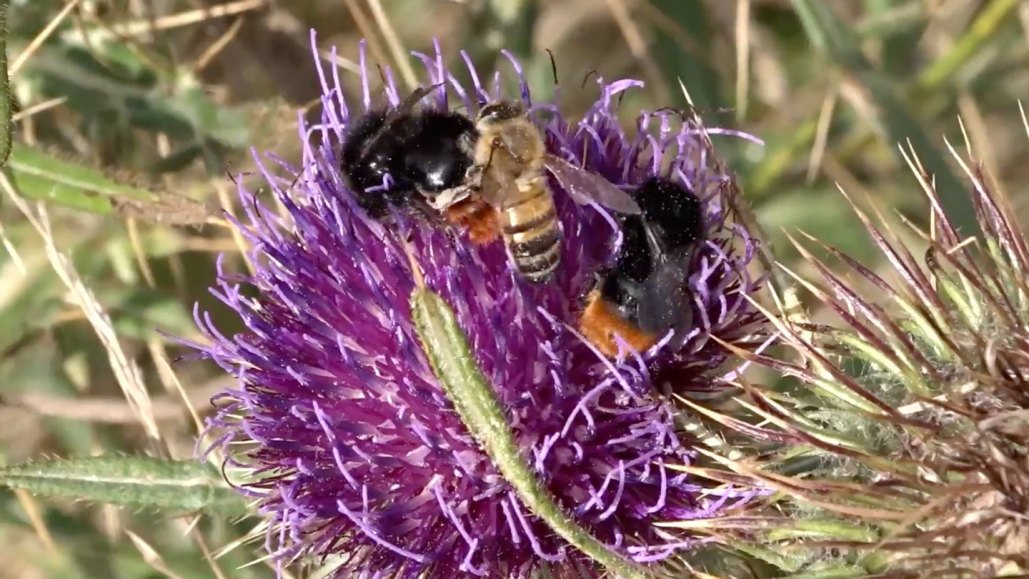Italian Honeybees Have Developed a Habit of Pilfering Pollen from Bumblebees

Honeybees obtain protein from plant pollen and some even resort to thieving from their fellow bees. This behavior, known as pollen thieving, has previously been observed in the United States.
Now, Italian researchers have also witnessed honeybees pilfering pollen from bumblebees. This thieving behavior has been extensively researched and documented, with findings published in Apidologie on December 21.
During a 2019 summer trip to Mount Antola in Italy's northern Liguria region, independent naturalists Tiziano Londei and Giuliana Marzi, both residing in Milan, captured footage of honeybees (Apis mellifera) apparently attempting to shove bumblebees off the flower of a woolly thistle (Cirsium eriophorum). Upon inspecting the video further, they found out that this was not simply a case of competitive disturbance but rather blatant pollen theft.
As red-tailed bumblebees (Bombus lapidarius) rummaged through flowers for nectar and pollen, honeybees were seen swiping the pollen that stuck to the bumblebees. The robberies were carried out mainly on male bumblebees because they didn't mind the theft as much as the females did.
Avery Russell, a biologist at Missouri State University in Springfield who didn't participate in the study, expressed that honeybees have a reputation for being "pollen pigs". Thus, stealing pollen from bumblebees doesn't seem out of character for them.
To establish how prevalent this thief like behaviour is, the researchers revisited the same location twice over the next three years and observed bees at two other sites about 25 kilometers away. There, honeybees weren't seen stealing from bumblebees. However, at the initial site, honeybees repeated their thieving behaviour. For instance, in 2021, honeybees stole from 28 of the 66 available bumblebees, gathering pollen directly from only three out of 31 flowers observed.
After comparing the differences between these sites, the researchers concluded that honeybees were inclined to steal in areas where getting pollen from flowers was challenging (as the honeybees found it difficult to collect pollen from the woolly thistle) but where other bees were plentiful.
Previously, honeybee pollen stealing had only been recorded in North America, in places like Kansas, California, and Indiana. Unveiling this behavior in Italy could suggest the existence of a global thieving habit among honeybees. Russell thinks it would be worthwhile to investigate whether this dishonest behavior negatively affects bumblebees or the flowers they pollinate. He is intrigued to find out if other bee species also indulge in pollen theft.




